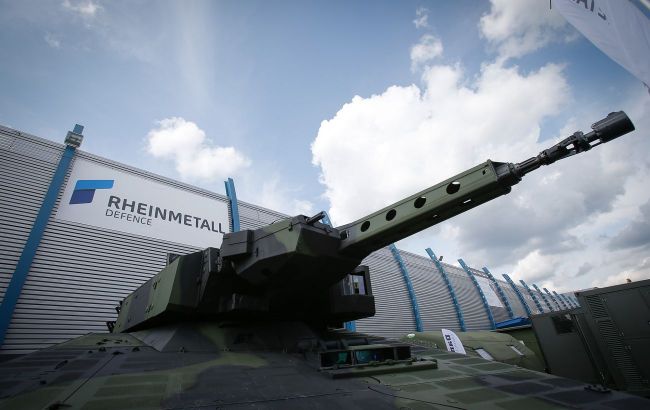Rheinmetall to supply tens of thousands of shells to Ukraine
 Rheinmetall to supply tens of thousands of shells to Ukraine (Getty Images)
Rheinmetall to supply tens of thousands of shells to Ukraine (Getty Images)
German company Rheinmetall has secured another order for the supply of tens of thousands of various types of munitions to the Armed Forces of Ukraine in 2025. The order is valued at a nine-figure sum in millions of euros (over 100 million euros), according to the company's website.
This new order continues a series of orders for artillery munitions previously placed by the Bundeswehr for the armed forces of Ukraine and Germany. In July 2023, Rheinmetall entered into a new framework agreement with the Bundeswehr in the artillery sector. It entails the supply of several hundred thousand shells, detonators, and metal charges.
The framework agreement is valid until 2029, with a potential order volume of approximately 1.2 billion euros.
Rheinmetall munitions
As the concern's press service notes, the need to replenish ammunition stocks due to the war in Ukraine has led to significant contracts for artillery ammunition for Rheinmetall.
Rheinmetall's family of artillery ammunition includes, among others, the fragmentation-shell DM121, smoke/obscuration shell DM125, and the smart submunition shell DM121 SMArt (developed in collaboration with Diehl Defence).
The group's product portfolio also includes the Assegai family of universal 155mm artillery ammunition produced by the South African company Rheinmetall Denel.
Rheinmetall also offers a family of artillery barrels called Rheinmetall Expal Munitions, including the 155mm M107 and the 155mm long-range barrels.
Target: 1 million shells
According to the plans outlined in March of this year, the EU committed to supplying artillery shells to Ukraine over a 12-month period, initially using existing stocks and then through joint procurement contracts and increased production.
At the end of November, Ukraine's Foreign Minister Dmytro Kuleba said that the European Union had so far delivered about 300,000 of the promised one million shells to Ukraine.
The EU is concerned that it may not be able to deliver one million shells to Ukraine on time, so there is a possibility that they will be purchased from countries outside the European Union.

